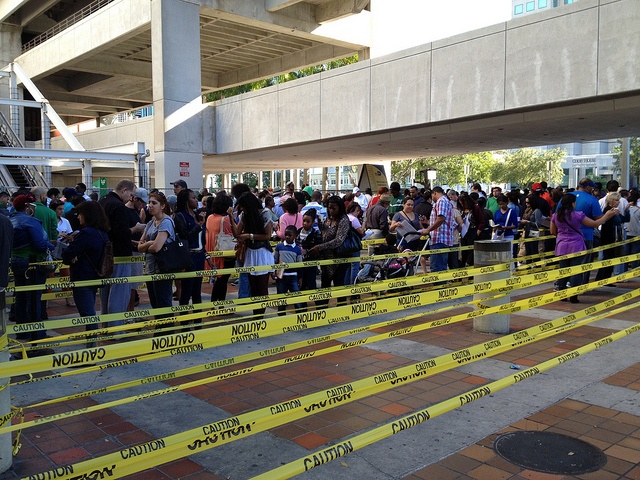Voting Rights: How to prevent long lines at the polls

With the 2016 elections nearing, a new study confirms that long lines and wait times are a serious barrier to voting for many citizens, with areas of Florida, South Carolina and Virginia having some of the biggest problems accommodating voters. (Photo of a 2012 voting line in Miami by Phillip via Flickr.)
Long lines and wait times at the polls are a voting rights issue.
During recent presidential election years, horror stories have emerged across the South and the country about voters having to wait in line for several hours to cast a ballot. While such extreme stories are rare, in 2013 a bipartisan commission decried the fact that some 10 million voters had to wait at their polling place for half an hour or more, arguing that "no citizen should have to wait in line for more than 30 minutes to vote."
Some states and localities do a better job of cutting down on wait times than others. A report released this month [pdf] by the Caltech/MIT Voting Project finds that geography — where a voter lives — is the single biggest factor in determining wait times. Drawing on two large election data sets, the report found "average wait times in 2012 ranged from 1.7 minutes in Vermont to 42.3 minutes in Florida — a difference of a factor of 25 between these two states."
Southern states as a whole rank among the worst for voting wait times, with Florida, South Carolina and Virginia ranking among the bottom five. While having a higher number of voters in dense cities is a factor, the report notes that this can't explain the differences between highly urban states like Florida and New Jersey, where the average wait time is five minutes.
Certain states also fare worse in multiple elections, pointing to deeper, structural problems in how elections are being run. Florida, Georgia, Maryland, South Carolina and Virginia were among the worst in terms of wait times in both the 2008 and 2012 presidential elections.
The Caltech/MIT study also echoed the findings of previous reports on the role of race. Overall, white voters enjoyed the lowest wait times at the polls, an average of 11.6 minutes nationally. The average wait times for African-American voters was more than twice that: 23.3 minutes.
The report attempts to quantify the cost of long lines, both economically and to the democratic process. Responses to the Census Bureau's 2012 Current Population Survey found that an estimated 500,000 voters nationally didn't vote because of problems at the polls, including long lines. The Caltech/MIT report projects an even larger number — 730,000 prospective voters — were turned away due to long lines alone.
Because workers are rarely able to get time off to go vote, waiting in line also has an economic cost. The report calculates that, with 23 million hours of waiting time in the 2012 elections at an average hourly wage of $23.67, standing in line at the polls had a total economic cost of more than $544 million.
How to solve the problem? The Caltech/MIT authors argue that election officials can make big strides by gathering more information about voting patterns and using it to plan more effectively. As the report argues:
An important first step in addressing long polling place lines is for local jurisdictions to get into the habit of regularly collecting the data necessary to diagnose the presence of congestion and analyzing it in a way that helps them to allocate the resources they have, or to advocate more effectively for new resources.
In many areas, finding the political will to garner the needed resources to implement such plans could be a challenge. As a study by the Brennan Center found last year, areas with longer wait times tended to be areas with fewer poll workers and voting machines. As the bipartisan Presidential Commission on Election Administration put it in its 2014 report [pdf]:
The most universal complaint of election administrators in testimony before the Commission concerned a lack of resources. Election administrators have described themselves as the least powerful lobby in state legislatures and often the last constituency to receive scarce funds at the local level.
Tags
Chris Kromm
Chris Kromm is executive director of the Institute for Southern Studies and publisher of the Institute's online magazine, Facing South.
